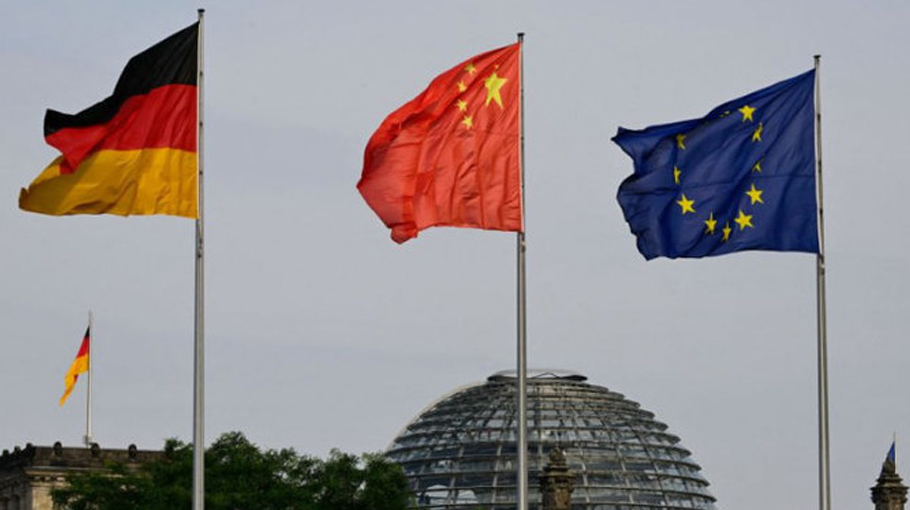Europe’s focus on Asia-Pacific powers continues to grow

As Europe enters a big election year, domestic politics in the region are being put on hold ahead of the big ballots ahead. However, much foreign policy activity is still underway with the potential to reshape global politics in the months ahead.
Indeed, in the wake of Russia’s invasion of Ukraine, and the Western project to “de-risk” from China, EU and non-EU nations are conducting a fundamental reappraisal of their global relationships.
This includes a reevaluation of resource-rich regions such as Latin America, where the EU hopes to conclude a trade and investment deal in January or February with Mercosur (the Southern Common Market) member states Brazil, Argentina, Uruguay and Paraguay.
However, another emerging, markets-rich part of the world will also be a key focal point for the EU in 2024: the Asia-Pacific. This includes a meeting of the EU-Asia-Pacific Forum and an EU-Association of Southeast Asian Nations ministerial meeting.
Of course, the Asia-Pacific has long been a region of interest for key European nations such as France, Germany, the Netherlands and the UK. Increasingly, however, a broader range of countries, including Italy, are showing growing interest, too.
There are several reasons for this stronger European emphasis on the Asia-Pacific. In 2021, the EU formally issued its new strategy for the region, which was a key bureaucratic milestone. It aims to bolster regional stability, security, prosperity and sustainable development at a time of rising challenges and tensions, in an attempt to uphold democracy, human rights, the rule of law and respect for international law.
Secondly, there is a growing recognition in Europe that the Asia-Pacific will continue to be one of, if not the, most dynamic areas of the globe. The region, if we define it to include countries stretching from the east coast of Africa to the island nations of the Pacific Ocean, is home to about three-fifths of the world’s population. It accounts for about 60 percent of global gross domestic product, about two-thirds of global growth, 40 percent of the EU’s total imports and, together with the EU, drives approximately 70 percent of global trade as well.
Thirdly, there is an urgent need in Europe to diversify supply chains. Not only is this defined in terms of reducing dependence on Russia but also China, and the Asia-Pacific will be a key part of resolving this conundrum.
Fourthly, there is political recognition in Europe of the need to shoulder greater levels of global responsibility, including in what sometimes is perceived as the far flung Asia-Pacific. There is growing awareness that the policy fate of that region is increasingly interwoven with that of Europe, and so there is a need to try to have an impact on its affairs.
For Europe, this new sense of urgency represents a step forward in efforts to find strategic clarity on the Asia-Pacific. However, key divisions remain within the EU-27, let alone the powers in the wider European region, that might significantly stymie the development and implementation of a clear, coherent approach.
There is a growing recognition in Europe that the Asia-Pacific will continue to be one of the most dynamic areas of the globe.
One of these strategic fault lines is the intra-European differences over the rationale behind deeper engagement with the Asia-Pacific. For powers such as Germany, this has long been based on commercial motivations. However, there are others, including France, for whom a broader strategic calculus is more relevant.
This important schism within the EU was highlighted in a fascinating study by the European Council on Foreign Relations, a think tank that questioned policymaking elites in the 27 EU member nations about the issue. In almost half of those states, decision-makers and influencers said the EU’s policy in the Asia-Pacific should be defined as “a field of opportunity to pursue economic interests.”
However, their counterparts in the other half of EU nations identified a broader European motivation for engaging the Asia-Pacific beyond taking “advantage of these new economic opportunities.” More specifically, they cited the importance of maintaining a security focus on China.
While this schism is potentially very significant, over time it is possible that more of Europe will shift toward a more holistic, strategic lens through which to view its relationship with the Asia-Pacific, especially if relations with China continue to deteriorate.
France, with its territories including New Caledonia and French Polynesia, and the islands of Mayotte and Reunion near Madagascar, is the only EU nation with a permanent military presence in the region.
However, other EU nations are showing increased strategic interest there, including the promotion of free and open maritime supply routes as required under international law. In 2021, for instance, a German warship sailed in the South China Sea for the first time since the turn of the millennium.
Last year, an Italian offshore patrol ship completed an almost half-year deployment to the region. It called at ports in 14 countries including Singapore, Indonesia and South Korea.
Within the vast Asia-Pacific geography, Europe’s diplomacy has traditionally focused on powers that are now part of the G20, including China, India, Japan and Australia.
However, the European Council on Foreign Relations study underlines how much the Association of Southeast Asian Nations is a much sought-after partner for EU countries navigating the region. Indeed, the researchers found that the group is the single most popular mechanism for European engagement, receiving endorsements from 21 of the 27 EU members. The reasons for this vary, including the fact that Europe favors a multilateral, cooperative approach to foreign policy given its own post-war history.
The EU is therefore at a pivotal point in its Asia-Pacific strategy. Big challenges remain but the emerging, market-rich mega region could potentially represent a huge opportunity for Europe to deliver on its goals, securing economic and political competitive advantages into the 2030s.
Andrew Hammond is an
associate at LSE IDEAS at the London School of Economics.
Source: Arab News




